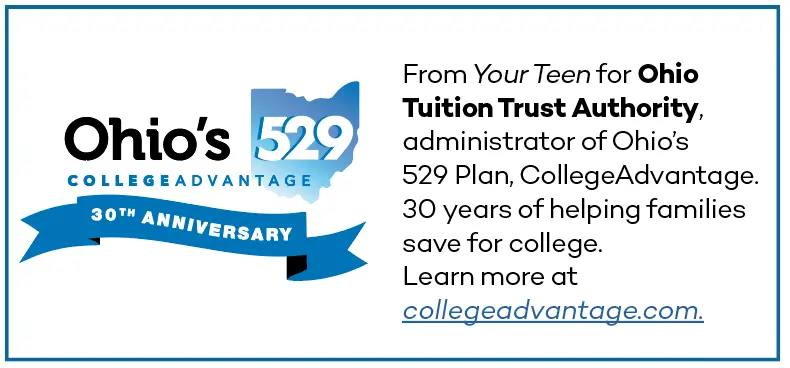There is a lot of economic uncertainty right now, and many parents’ college funds have taken a big hit. If you have a junior in high school and the college decision is looming, you and your teenager are certainly feeling the stress. Your Teen spoke with Scott Jaschik, editor of Inside Higher Ed, for advice about how to prepare for college.
Q: What advice would you give high school juniors right now about how to prepare for college?
Jaschik: Relax. I know that sounds like a really crazy thing to say. There is a lot that will still need to be figured out. But remember, everyone is in the same situation. And colleges want you to enroll. They want you to apply. They’re going to figure out some sort of way to deal with everything that looms large. Take your courses online if you can. Finish your AP classes if you can. And take the AP exam. Also, plan to visit the colleges now—it’s very important. Colleges value visits a lot. At some point I believe colleges will reopen. If you have an opportunity to visit a college, visit as soon as you can. Don’t wait.
| [adrotate banner=”158″] |
Q: If you can’t afford the college visit, what can you do?
Jaschik: If money is the obstacle, you need to ask whether they have any scholarship programs for campus visits. Call the admissions office. There are colleges that have whole programs. It doesn’t mean everyone does, or that it’s going to be easy to get money for visiting. But it’s worth asking.
Q: How can students show colleges demonstrated interest without showing up on the campus?
Jaschik: There are all kinds of ways you can show interest. Do you call the admissions office? Do you call a professor in a field that you want to study and then write an essay in which you discuss how you talked to the professor? Do you talk to a coach? All of these things are demonstrated interest. And I think colleges are going to have to look at demonstrated interest a little differently in the next year or so.
Q: What advice do you have for parents of juniors right now about how to prepare for college?
Jaschik: If your financial situation has become significantly worse, you need to tell your student and have a frank discussion about what’s possible. But again, ask the colleges for help. They have some money for this purpose. I think a big mistake many parents make is not talking honestly with their children about this issue. It’s uncomfortable. We aren’t a good society when it comes to talking about money. But you’ve got to do it.
Q: So many schools are going test optional right now. Is it an advantage to still take those tests and submit them?

Q: If someone is looking at a list of colleges and not all of them are test optional, would you encourage them to keep preparing for the SAT or ACT?
Jaschik: Yes. If you’re applying to a college that requires it, you should take the SAT or the ACT, but you shouldn’t let it dominate your high school experience. That’s when I think it does more damage than good. There are lots of test optional colleges, very competitive, not so competitive, and in the middle. You can find one.
Q: Are your grades the most important thing now?
Jaschik: Most test-free universities practice holistic admissions, which means they look at everything. But your grades in college preparatory courses are the single most important factor.
Q: Do you envision colleges changing how they give credit for AP this semester since kids have not completed those courses yet?
Jaschik: Yes, I think students need to take the AP test to show that they finished, and they also have their AP grades. Look, this relates to the first thing I said. Relax. They’re going to figure it out. The colleges want to count your AP courses. They’re going to find a way to do it if you get good grades.
Q:There are so many unknowns right now, especially financial aid. You used to have an idea what your family need was. How do you talk to your junior about this?
Jaschik: It’s going to be a crazy year here because colleges are dealing with things they haven’t dealt with before. They don’t know who’s going to come in the fall. And that is going to influence how they handle those who are trying to apply for the next year. But parents must talk honestly with their children about their finances. There is no shame in it. And it has a lot to do with how you plan this year. Parents need to share that information with the college and find out where their child can get financial aid. You can talk to the financial aid office. They are there for to you. Use them.
Q: How important is a campus tour?
Jaschik: They are very important. If you can go, go. Students base their decisions perhaps on things like the rainy day and not wanting to come. But ultimately, in addition to being about academics, it’s about whether a student feels comfortable walking around the campus. That’s just reality. I think it matters a lot.
Q: How effective are virtual tours?
Jaschik: They are very effective. They can give you a sense of the place. And colleges are getting much more creative about what they do online. Smart colleges also are creating lots of small portions of video content. A student who needs information about financial aid can find it. The student who wants information about how your roommate is picked can find it. I would definitely encourage you now to go and use the online materials.
Q: What’s the good news for parents and students right now?
Jaschik: Colleges today are very concerned about what’s going to happen. Professors have taken their courses online. Admissions materials are now online. Why are they doing this?

Because they want to help their current students and their new students. They want you to apply. So know that ultimately you’ll apply to college and you’ll get in somewhere. Right now, try to focus on the process and not your worries.





